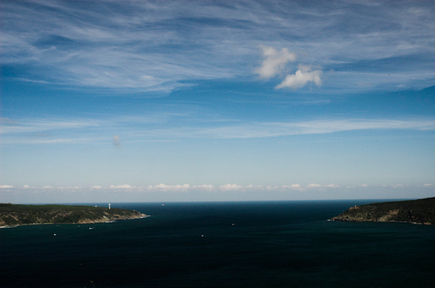I spent four days in the city of Odessa, Ukraine, searching for the legacy of the author Isaak Babel.
What I found was a literary museum filled with information about authors that were mostly unknown to me. The guards in the museum were old ladies. The youngest must have been 85. They follow the rare visitors--that Wednesday morning I was the only one--with a mix of suspicion and admiration.
In the museum, there was a small piece of Babel's furniture, his spectacles and some letters, all of them of course in Russian.
A guidebook informed me about the historical museum of the Jewish community in Odessa, where I might find some more information on Babel.
The museum was not as much of a museum as it was a private apartment disguised as museum. Two men and a child were walking around. One of the men was wearing flip-flops. I had the feeling that he had left the shower a few seconds earlier to open the door for us.
The one without flip-flops offered us a tour. He didn’t speak a word of English, but fortunately, I was accompanied by a friend who speaks a little of bit Russian.
The guard told us that back in Babel’s time the trade in women was completely in Jewish hands. They were shipped from Odessa to Istanbul. He said it with a sense of pride that astonished me.
But in many ways, the standards in Odessa are still slightly different from what people are used to in Frankfurt, London and New York.
After the museum, it was time to rent a boat to discover the pleasures of the Black Sea.
The boat came with a captain, strawberries, peaches, champagne, mineral water and women.
I took the captain, the strawberries, the peaches, the champagne, the mineral water, but told the guy who made this beautiful offer to me that no women were needed yet.
Also at the Hotel Otrada (four stars, by no means anything sleazy), I was asked if I was interested in marriage.
Interested, yes and no.
I might end up with a Ukrainian bride, but I’d like to wait a little bit more before marrying.
